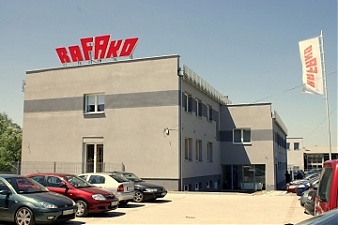Construction, Energy, EU – Baltic States, Lithuania
International Internet Magazine. Baltic States news & analytics
Friday, 19.12.2025, 11:22
Poland's Rafako questions Amber Grid's choice of Alvora as GIPL contract winner
 Print version
Print version |
|---|
In its letter to the government, the energy minister and a special governmental commission vetting deals by strategic companies, Rafako, which bid for the contract jointly with Lithuania's MT Group, points to what it describes as controversial circumstances that may determine the outcome of the tender process and asks the commission for information.
According to Rafako, Alvora derives the bulk of its revenue from operations in the Russian and Belarusian markets, where it has local subsidiaries, Alvora–Bel, Alvora–Balt and Spetsmontazhstroy, and where its portfolio includes high-value energy and other public projects.
"In the light of this, it cannot be ruled out that this company has, or has had in the past, links with foreign government bodies or natural or legal persons of these states that increase the risk or pose a threat to national security," the Polish firm said in the letter.
Nikolaj Kolesnik, CEO and a co-owner of Alvora, which generates revenue of 35 mln euros annually, says he is surprised at the competitor's move.
"These are dirty games, let me put it this way. They lost the bidding and want something... No one has any reproaches to our company, either in Lithuania or anywhere else. I'm surprised to hear such things," the CEO told LETA/BNS.
"In Belarus, we only work with private customers; we aren't working with state enterprises; that's our policy. We've been working there for 20 years (...), mostly with foreign investors, Germans and Poles, (and) local Belarusian investors. What threat can we pose to national security?" he added.
According to Kolesnik, Alvora stopped working in Kaliningrad several years ago and only has a land parcel that it wants to sell. It may soon withdraw from Belarus, too, due to declining orders and increasing competition.
"We're working in Belarus, but we don't get the bulk of our orders there; perhaps up to 30 percent. (Orders) are declining evert year; we'll exit (the market) shortly, too. I see no prospects there; competition is increasing; it becomes difficult to work there," the CEO told.
"We're working in Lithuania (and) Sweden. We take the Swedish market very seriously; we've built a boiler facility there (and) revenue is growing, little by little. We're about to complete a project in Estonia; we do work as far away as South Africa," he added.
In Belarus, Alvora builds factories, logistics centers and supermarkets. It builds pipelines only in Lithuania and Estonia, according to the CEO.
Rafako notes, among other things, that Alminas Maciulis, the head of the commission, has told LETA/BNS that the approval by the government of Amber Grid's security plan will make it easier for his commission to decide on the winning bidder and that the panel greenlighted the deal "with very clear recommendations on potential risk management measures".
The Polish company asks for the commission's documents evaluating risks regarding Alvora, its recommendations on potential risk management measures, and information as to the date of drafting of Amber Grid's security plan and updates.
Following the removal of another bidder, a consortium of Kaunas-based KRS and Belarus' pipeline construction company Beltruboprovodstroy, Belarus' Foreign Ministry handed in late July protest note to Lithuania's chargé d'affaires in Minsk over what it described as "interference in a commercial transaction".
The KRS-Beltruboprovodstroy consortium submitted the lowest price offer, at around 91 mln euros, but the governmental commission did not clear the deal, saying it did not meet the national security criteria.
Rafako, which is part of the PBG Group, says it is the biggest boiler producer in Europe. The company has won a 149.65-mln-euro contract from Lietuvos Energija for biomass equipment at the state energy group's Vilnius cogeneration plant.








 «The Baltic Course» Is Sold and Stays in Business!
«The Baltic Course» Is Sold and Stays in Business!

